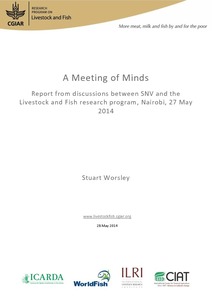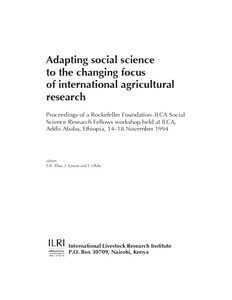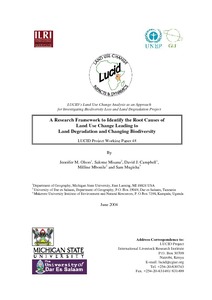A landscape that unites: community-led management of andean watershed resources
Adapting social science to the changing focus of international agricultural research. Proceedings of a Rockefeller Foundation-ILCA social science research fellows workshop
The papers in this proceedings provide a cross section of science research in international agricultural research centres (IARCs), where the objectives and research foci within the Consultative Group on International Agricultural Research (CGIAR) have changed substantially in the 1990s. The book is divided in five sections. The first explores priority setting and research evaluation of commodity programmes. The second looks at institutional issues. The third explores issues related to commodity policies and food security.
A shared research agenda for landuse, landuse change, forestry and clean development mechanism: developed through an international workshop held 6-8 March, 2001, Bogor, Indonesia
About 20% of global greenhouse gas emissions are from landuse, landuse change and forestry (LULUCF) and mostly are from deforestation in the tropics. In March 2001 the Centre for International Forestry Research facilitated an international workshop to identify a global agenda of high priority research questions key to research areas related to the Clean Development Mechanism (CDM) and LULUCF.
A socio-hydrological approach for incorporating gender into biophysical models and implications for water resources research.
Men and women interact with water resources and landscapes in different ways, and there are frequent criticisms that little research is undertaken across disciplines to address this issue. Biophysical scientists in particular struggle with how to integrate “gendered” water uses into models that are necessarily based on prevailing laws and equations that describe the movement of water through the hydrological cycle, independent of social constructs.





